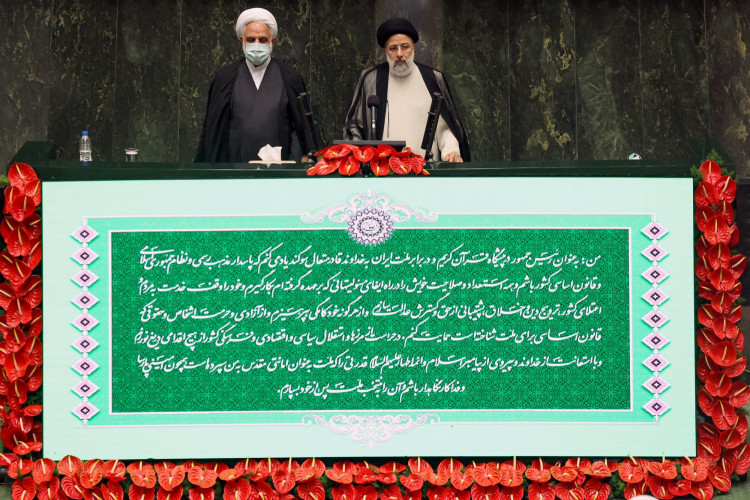Iranian President Ebrahim Raisi recently made a landmark visit to Riyadh, Saudi Arabia, for a major summit focused on the Israel-Hamas conflict. This visit marks a notable thaw in relations between Iran and Saudi Arabia, as it's the first such trip by an Iranian leader in over a decade, following the restoration of diplomatic ties in March.
At the summit, Raisi emphasized the collective responsibility of the Islamic world to address the Palestinian issue, stating, "We have gathered here today to discuss the focus of the Islamic world, which is the Palestinian cause, where we've witnessed the worst crimes in history...Today is a historic day in the heroic defense and support of Al-Aqsa Mosque." His comments underscored a shared concern among the summit's participants over the situation in Gaza and the broader Palestinian territories.
Meanwhile, Saudi Arabia's Crown Prince Mohammed bin Salman, often referred to as MBS, echoed similar sentiments, expressing categorical rejection of the war against Palestinians and calling for an immediate cessation of military operations. The Crown Prince's remarks reflect Saudi Arabia's increasing willingness to play a more active role in regional conflicts, particularly those involving Israel and Palestine.
Palestinian Authority President Mahmoud Abbas, also present at the summit, held the United States accountable for the lack of a political solution, citing its influence over Israel. This perspective highlights the complex international dynamics surrounding the Israel-Palestine conflict.
The presence of other notable leaders, including Syrian President Bashar al-Assad, indicated a broader regional realignment. Assad's attendance marked a further step in Syria's reintegration into the Arab political fold after years of isolation.
The summit's collective call for an immediate end to hostilities in Gaza signals a significant shift in the Arab world's stance on the conflict, moving away from a more fragmented approach to a unified demand for peace. This unity is particularly notable given the historical divisions and varied stances within the Arab world regarding Israel.
The attendance of leaders from Iran, Turkey, Qatar, and Syria, alongside the Arab League's involvement, underscores the multifaceted nature of Middle Eastern politics and the growing importance of diplomatic efforts to resolve longstanding conflicts. The Riyadh summit represents a pivotal moment in regional diplomacy, with potential implications for future peace initiatives in the Middle East.




